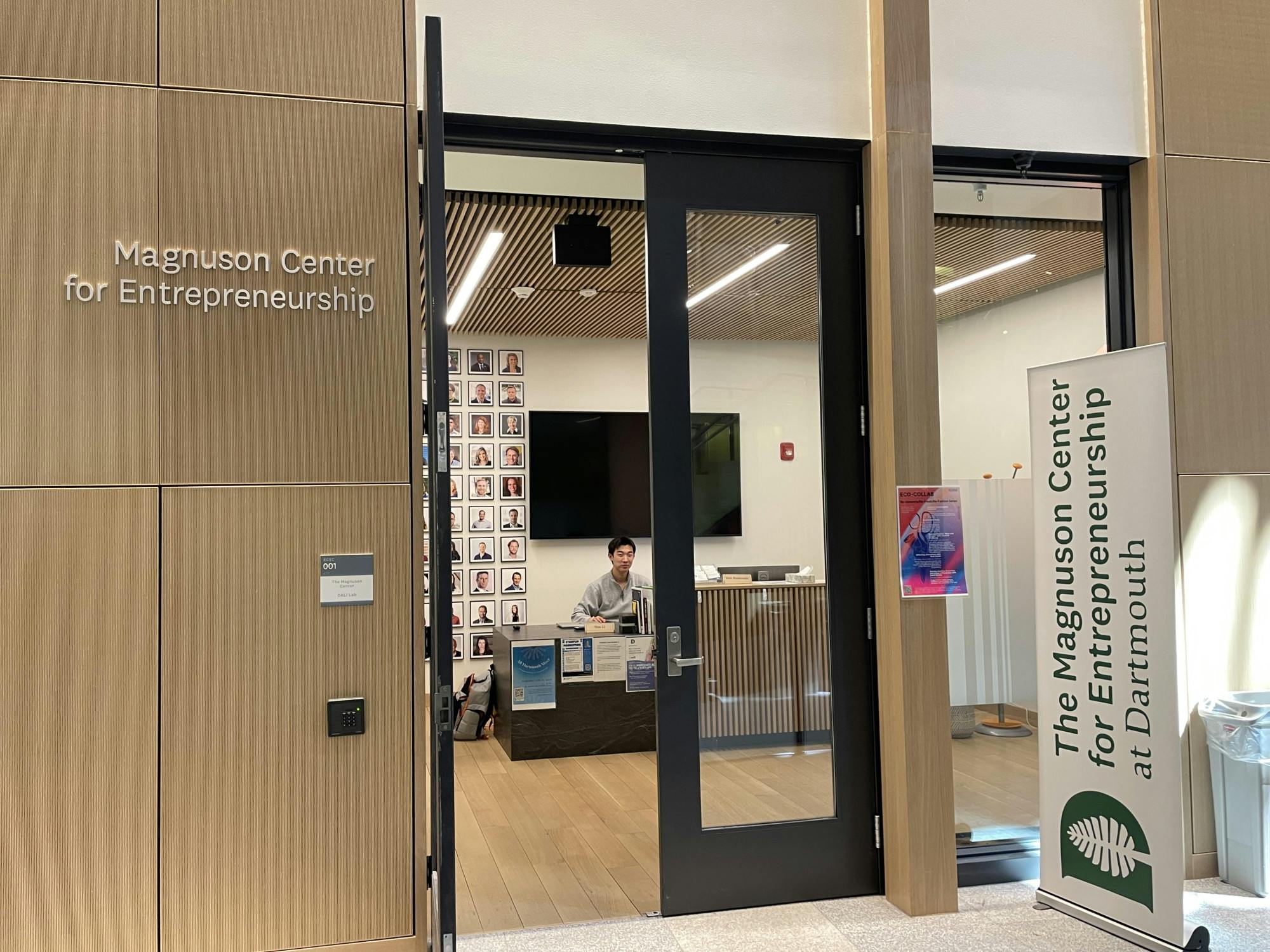Three startups sponsored by the Magnuson Center for Entrepreneurship — NovaChirp, NET Offset and Sea Energy — will travel to Mexico, Portugal and the United Arab Emirates to compete in the Hult Prize Challenge, the world’s largest social entrepreneurship competition, according to program manager at the Magnuson Center Sarah Morgan.
The Magnuson Center hosted the 2024 DartUp Social Blueprint Challenge in the winter, a competition for social entrepreneurship pitches from undergraduate and graduate students. The winning team automatically qualified to compete for the Hult Prize, according to first-place team leader Adriana Chavira Ochoa ’24.
The Hult Prize “challenges young people to solve the planet’s most pressing issues through social entrepreneurship,” according to its website. Prize-winning teams receive one million dollars to fund their idea.
This year, the Hult Prize regional competitions will be held in India, Mexico, Portugal, Taiwan and the U.A.E., while the final round of the competition will take place in England in September. Ochoa and her team — Andre Bouzid ’25, Paulina Cuadra ’25, Elizabeth Ding ’24, Nicole Tooper ’24 and Mike Hanrahan ’24 — will represent Dartmouth as NovaChirp, a cricket powder protein startup, at the Lisbon Summit in Portugal on June 21 and 22.
NovaChirp aims to produce cricket powder for consumption to address climate change and malnutrition in alignment with key United Nations sustainable development goals, according to Ochoa.
“The target is to fight climate change and malnutrition — especially in Mexico, as the poverty rates are growing and because Mexico has some of the highest rates of obesity,” Ochoa said. “Our business model is business-to-business and business-to-consumer, and we would be based in Mexico where it would be lower cost, allowing us to maximize our production.”
Ochoa said she first came up with the idea of using crickets to combat climate change and malnutrition during a trip back home to Mexico City around a month ago, when she ate crickets at a restaurant.
“After conducting research of my own, I found how nutritious crickets really are, so when I heard Magnuson was holding a competition for an idea, I signed up with the support of my friends,” Ochoa said.
Crickets can be an effective solution to malnutrition because they have more “iron, calcium and B12 than most animals,” are “jam-packed with nutrients” — such as the nine amino acids prebiotics — and reproduce quickly, Ochoa said.
“The way we’re consuming livestock… is not sustainable,” she explained. “NovaChirp is able to run this social enterprise in a way that is profitable but also extremely valuable for humanity.”
Despite these benefits, Ochoa said the team is currently struggling to overcome the stigma around insect consumption. She added that NovaChirp is currently working with a food scientist to combat the stigma.
“Crickets are not something that is really familiar to me, but I was always open-minded to it,” NovaChirp team member and consultant Bouzid said. “Trying them and realizing how delicious they were and their impacts sold me there and then.”
Ding, who serves as NovaChirp’s chief financial officer, said she created a film about the startup through the MAD Video Research Contest.
“I wanted to support my best friend [Ochoa] and really found the idea super interesting,” she said. “I felt like the product could really come to fruition.”
The team explained that the cricket protein will be delivered via a dietary cube similar to the chicken bullion cubes found at supermarkets.
“Our products will dissolve into a variety of very simple diets, which will be very effective in spreading to communities who might not have as much access to protein,” Ding said.
NovaChirp will compete in Lisbon through the ISEG Lisbon School of Economics & Management, Ochoa said.
Two other Dartmouth teams, NET Offset and Sea Energy, applied to the Hult Prize competition through an open application and were accepted to compete in regionals alongside NovaChirp.
NET Offset will compete at the Monterrey Summit in Mexico on June 15 and 16 through the Instituto Tecnológico y de Estudios Superiores de Monterrey. The team is led by graduate student Baptiste Gibrat GR, along with Thayer students Michael May Th and Thomas Hue Th.
In addition, Sea Energy will compete at the Dubai Summit on June 21 and 22 through the Hult International Business School. The team is led by Calvin Benson ’25, along with Eva Hymes ’25, Emily Masuda ’24, Shaamil Shaw Alem ’26 and Georgetown University student Arjun Brar.
The NovaChirp team emphasized that they are aiming to win the Hult prize and aspire for their startup to “shift the way [consumers] are consuming.”
“We want to see consumers shifting to a more sustainable choice, a more nutritious choice, a more affordable choice — and just helping combat climate change,” Ochoa said.
Correction Appended (April 29, 2:25 p.m.): A previous version of this article was missing a NovaChirp team member and featured an incorrect quote by Adriana Chavira Ochoa. The article has been updated to reflect these changes.




